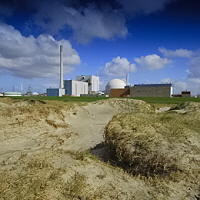A court in Arnhem, the Netherlands, has ruled that Germany's RWE cannot acquire Essent's 50% stake in the Borssele nuclear power plant as part of its takeover of the Dutch utility.
 |
| Borssele (Image: EPZ) |
RWE and Essent formally signed the offer agreement in February. In the agreement, RWE makes a binding all-cash offer to the shareholders of Essent for the acquisition of all the issued and outstanding shares of Essent. RWE received approval from the European Commission (EC) for the acquisition on 23 June.
However, Delta, owner of the other 50% of the Borssele plant, said in April that it was taking legal steps to prevent RWE taking over Essent's share of the plant. Delta said that the majority of its shareholders had demanded that EPZ - the joint venture between Delta and Essent for the Borssele plant - should remain in public ownership, in line with EPZ's articles of association and the shareholders' agreement. Delta shareholders claimed that Essent must offer its shares in EPZ to Delta, which would ensure that public interests are protected.
Delta said that Essent had proposed that the legal ownership of its 50% stake in EPZ should be assigned to the current shareholders of Essent. The economic ownership would then be transferred to RWE. This, Delta claimed, would still give RWE control over the shares by a "back-door route."
In May, Delta announced that it was taking Essent, RWE and Essent's 136 public shareholders to court, claiming that they had acted unlawfully through the way in which the transaction structure of the deal had been specified.
A court in Arnhem has now ruled in Delta's favour, saying that Essent's shares in EPZ must remain in public hands, as EPZ's statutes stipulate.
Peter Boerma, CEO of Delta, commented: "We welcome the ruling. This is an important first step towards our goal to keep Borssele in the hands of the public."
The deal with RWE only concerns Essent's commercial energy activities and will not include its electricity and gas distribution networks and waste management operations. Essent will become an independent business unit of RWE, serving as the group's platform for growth in the Dutch and Belgian markets. Its trading activities will be merged with those of RWE, while RWE's current Belgian and Dutch businesses will be integrated into those of Essent.
Essent formally split its commercial production and supply business from its distribution network operations on 1 July. Its commercial energy activities will continue to be called Essent, while its distribution network company will be known as Enexis.
The Borssele plant generates only about 4% of the Netherlands' electricity. A 1994 decision by the Dutch parliament to phase out the plant by 2003 was subsequently put back and eventually overturned, and the 485 MWe pressurized water reactor is expected to operate until 2034. Delta has mooted plans to build a second nuclear power station nearby.




_30199.jpg)
_72306.jpg)

_49562.jpg)





